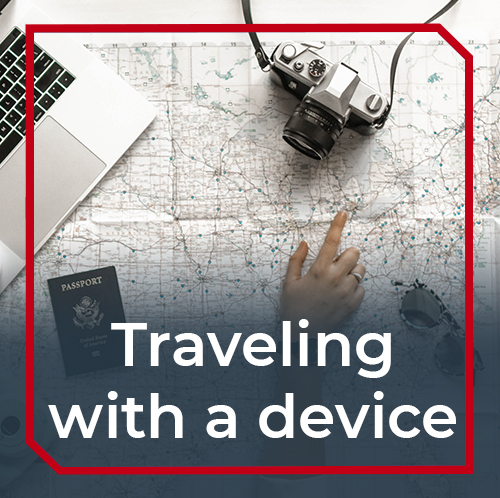Customer Story: Mikkel (ICD)
Deze blog gaat over Mikkel, een ICD-drager met een passie voor Jiu Jitsu.
We stelde hem een aantal vragen.
Sinds wanneer heb je een ICD?
Ik heb sinds 2020 een ICD.
Welke invloed heeft de krijgen van een ICD op je leven gehad?
Toen ik mijn ICD voor het eerst kreeg, dacht ik dat dit het einde van de wereld was. Ik was twintig jaar oud en plotseling waren er al deze beperkingen voor mij. Mijn dokter gaf me zelfs een pamflet met alle dingen die ik niet kon doen. Gelukkig is mijn vader altijd een rots in mijn
leven geweest en heeft hij mij geholpen andere wegen te vinden. Dus als deze manier niet werkt, proberen we een andere. En als dat ook niet werkt, proberen we een andere. Maar het is niet allemaal slecht. Uiteindelijk kreeg ik een baan, waar ik mijn vriendin ontmoette – een baan
die ik niet zou hebben aangenomen als ik bij het leger of de politie was gegaan.

Mikkel viert zijn eerste plaats op het Deense nationale kampioenschap.
Nu ICD hebt, wat is er veranderd met betrekking tot:
A) Jouw werk
Ik heb altijd al soldaat willen worden en bij de speciale strijdkrachten willen gaan. Maar toen ze mijn hartkwaal ontdekten, ging die deur dicht. Ik dacht toen dat ik misschien naar de politieacademie kon gaan. Maar toen ik mijn ICD kreeg, ging die deur ook dicht. Het heeft veel
acceptatie en zelfvertrouwen gekost (en een paar jaar om deze te verwerven), maar ik heb eindelijk een carrière gevonden waar ik echt van geniet: leraar zijn.
B) Sporten
Ik doe Jiu Jitsu, wat een behoorlijk fysieke sport is. Toen ik voor het eerst mijn ICD kreeg, dacht ik niet dat ik het ooit nog zou kunnen doen. Maar toen ontdekte ik Vital Beat waardoor ik niet alleen kan trainen, maar ook echt aan wedstrijden mee kan doen!
C) Dagelijkse activiteiten
Mijn dagelijkse leven is eigenlijk niet zoveel veranderd. Het kan zijn dat ik hier en daar onbewuste beslissingen neem, maar ik zou het je echt niet kunnen vertellen. Ik mag mijn sport doen, ik ga naar de sportschool, ik ga naar mijn werk. Ik vergeet zonder twijfel dat het daar
soms (RED. ICD) is. Het grootste dat ik heb gedaan om rekening te houden met mijn ICD, is toen ik een nieuwe telefoon kocht, het geen iPhone was. Ik had namelijk ergens gelezen dat de macsafe niet veilig is voor mensen met een ICD.
D) Sociaal leven/netwerk
Sinds ik mijn ICD heb gekregen na een bijna-doodervaring, heb ik me gerealiseerd dat het leven veel kwetsbaarder is dan ik eerder dacht. Ik ben daardoor veel selectiever geworden in hoe en met wie ik mijn tijd wil doorbrengen. Gelukkig heb ik ook een aantal fijne vrienden waar ik, ook al zien we elkaar niet zo vaak, op kan rekenen. Ze laten me ook dingen doen waarvan ik dacht dat ik ze niet wilde of kon doen, maar die uiteindelijk best leuk waren.
U bent klant bij Vital Beat. hoe heb je ons gevonden?
Ik heb Vital Beat gevonden omdat ik niet wilde stoppen met Jiu Jitsu. Ik dacht dat er een manier moest zijn waarop ik het kon doen. Ik kan me de exacte zoekinvoer die ik heb gedaan niet meer herinneren, maar ik ben op de vitalbeat.com -website terechtgekomen, waar ik erg blij mee ben.
Waar gebruik je de Vital Beat Protection voor?
Ik gebruik de Vital Beat-bescherming voor mijn Jiu Jitsu-oefeningen en wedstrijden.
Heeft het gebruik van het beschermingsschild u geholpen? Op welke manier?
Het heeft mij geholpen om Jiu Jitsu daadwerkelijk te kunnen beoefenen.
Wil je tips of advies doorgeven aan andere ICD dragers?
Vooral voor de jongere mensen die een toestel krijgen: het is niet het einde van de wereld. Toegegeven, het vergt wat aanpassing, maar alles komt goed. Zoals mijn vader altijd tegen mij zei toen ik opgroeide: er is niets dat zo slecht is dat het ergens niet goed voor is.
Andere opmerkingen?
Bedankt voor de geweldige producten!

